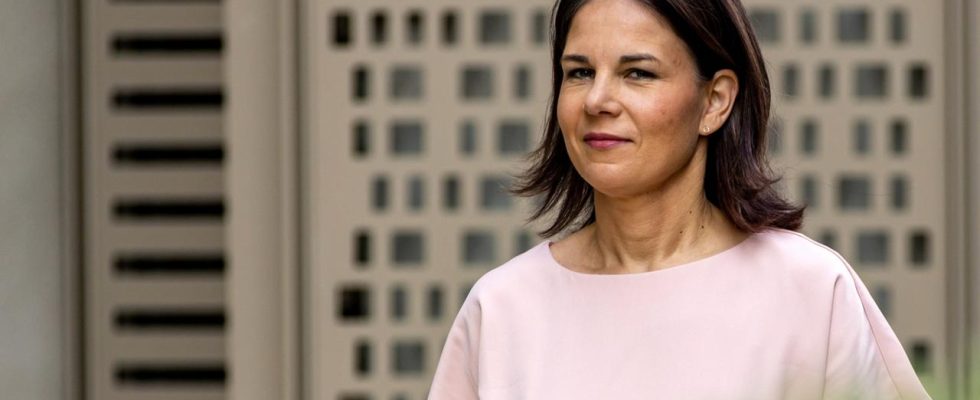Foreign Minister Baerbock is taking on an important role at the climate conference: She is leading negotiations for the EU about whether the global community can agree on more ambition in climate protection. But many countries depend on coal, oil and gas.
German Foreign Minister Annalena Baerbock will play an important role in the final negotiations in Dubai. She should take the lead in negotiating the most important point for the EU – the exit from fossil fuels, coal, oil and gas. She says: “It is already clear that in the end there will be the fiercest wrangling over this point. Because there are still powerful voices from the old, fossil world, especially here at this COP.”
The environmental protection associations are supporting the Green minister. Martin Kaiser, Managing Director of Greenpeace Germany, says: “We have great expectations of the Foreign Minister that she will remain tough with the EU and for the EU on the question of phasing out fossil fuels and without ifs and buts.”
Activist Luisa Neubauer from Fridays for Future also warns that the federal government must remain credible. Neubauer criticizes the traffic light’s energy policy: “On the one hand, demanding a fossil exit from everyone else and then turning around and negotiating further new fossil deals, promising financing, promising support – that’s lying.”
A compromise for the exit
Meanwhile, the conference president, Sultan Ahmed al-Jaber from the United Arab Emirates, encourages the delegates to compromise and spreads optimism: he feels that “something unprecedented could happen here in Dubai.”
Can it perhaps only be decided to phase out coal, oil and gas in an oil state? Al-Jaber had announced that he considered this to be the big task here in Dubai. The resistance from Saudi Arabia, but also from China and Russia, is strong.
Where might the landing zone for compromise be? Christoph Bals, a very experienced observer at the Germanwatch think tank, believes it could be an entry point into the phase-out of coal, oil and gas. With two time horizons: a “shutdown” by 2030 and an exit by 2050. In the short term, according to scientific analyses, 43 percent fewer greenhouse gases by 2030 should actually be part of the compromise.
Bals admits: “We most likely won’t get that number here.” But the result must be something that at least expresses this number qualitatively. For example, by referring to the data from the Intergovernmental Panel on Climate Change. And when it comes to the final exit, it would probably have to be formulated that it would have to come faster in the industrialized countries than in the emerging countries. But this analysis of a possible outcome is probably more of an optimistic prediction.
precaution takes place Crisis management
Sabine Minninger, climate officer from the organization “Bread for the World,” loudly criticizes the fact that there is practically no progress at all in the discussions on adaptation financing. Instead, only comparatively very small amounts of money would be donated to the new fund to compensate for damage and losses.
The money would be better invested the other way around: “Strong adaptation financing would also prevent climate damage. In concrete terms, climate damage is four times more expensive than sensible adaptation financing,” she calculates. An example: Building an irrigation system in agriculture would make more sense than providing food aid after a drought.
Al-Jaber: oil manager or diplomat?
In any case, the conference president has now stepped up a gear in the negotiations and is letting ministerial pairs – one each from a developing country and one from an industrialized country – look for solutions to the problems. But the question remains: will the oil manager ultimately have the upper hand in Al-Jaber’s actions or will the diplomat who achieved clever successes here at the beginning of the conference?
Martin Kaiser from Greenpeace says: “I think that with these successes we have to grab hold of him and also convince him that there is a different economic model in which people who don’t have that much money can also be taken along in this climate crisis.”
Renewable energies – as a large majority of countries already see it – are the solution that makes prosperity, growth and climate protection equally possible.
Werner Eckert, SWR, currently Dubai, tagesschau, December 8th, 2023 4:16 p.m

